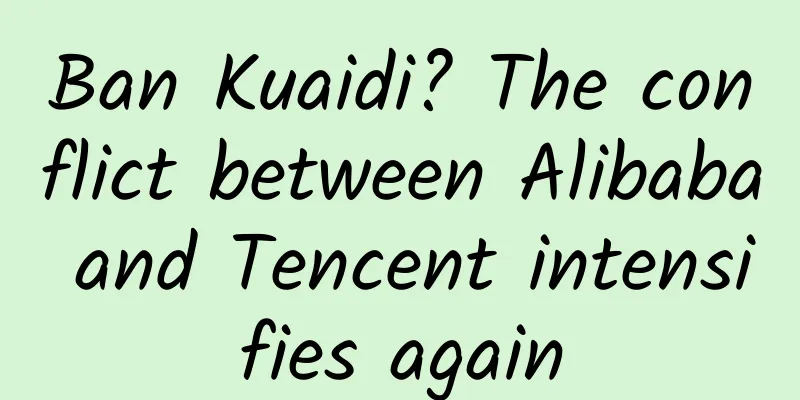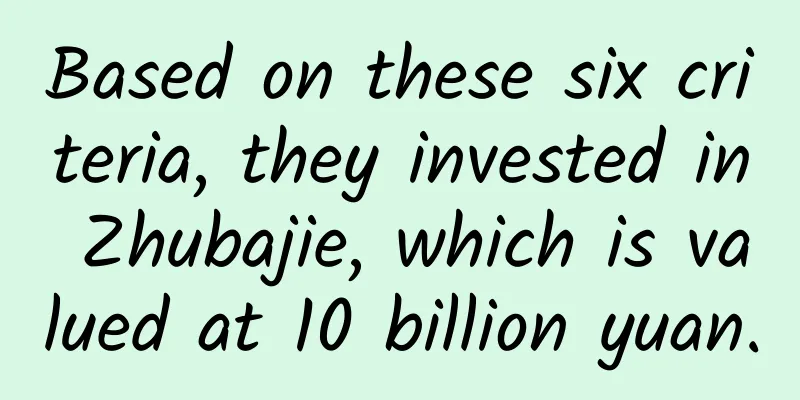Ban Kuaidi? The conflict between Alibaba and Tencent intensifies again

|
On November 25, 2014, Kuaidi Dache, which was invested by Alibaba, was banned in WeChat Moments. A person close to the senior executives of Kuaidi Dache suggested that this was a manifestation of Tencent's suspected abuse of its market dominance. Why did Didi Dache, which was invested by Tencent, remain unscathed? Lou Chi, the operator of Mr. Lou's Lecture Hall, who has been paying close attention to the adult products industry for a long time, pointed out that Tencent banned Didi Taxi in June, so why did no one say anything at that time? Now that it has banned Kuaidi, a lot of people are complaining? Mr. Liu from Ruiguancha believes that Tencent did ban Didi Taxi, but this does not mean anything. The reason is that at this stage, both Didi Taxi and Kuaidi Taxi have the behavior of inducing sharing, but Tencent selectively enforced the law and killed Kuaidi. In fact, Ruiguancha believes that this is not an isolated incident. The closure of Kuaidi Taxi is the result of the long-term intensification of the conflict between Alibaba and Tencent. Ruiguancha made a simple inventory of the war between the two sides in recent years: 1. Struggle over core interests 1. The WeChat red envelopes during the 2014 Spring Festival were regarded by Alibaba's Jack Ma as "Japan's attack on Pearl Harbor". Through this campaign, Tencent easily gained hundreds of millions of bank card-linked users. For Alibaba, mobile payment is its core interest, and Tencent has crossed the line. 2. In 2013, Alibaba launched Laiwang in a high-profile manner. Alibaba's public relations department went around trying to get people to sign up for Laiwang, which was a bit like when Lao Chen started Sina Weibo and Sina Technology mobilized everyone to recruit celebrities. Anyone with a discerning eye could see that Laiwang's positioning was a bit like WeChat. For Tencent, WeChat is its core interest. Second, the dispute over non-core interests 1. Map Battle Alibaba spent $1.1 billion to acquire AutoNavi Maps and AutoNavi Navigation. Tencent has always wanted to enter the map business, but has not made much progress. So far, Tencent Maps has been in a mediocre state. 2. B2C competition After Tencent's C2C strategy failed, it switched to investing in JD.com to do B2C. This is a roundabout way to save the country, using investment companies to fight against Alibaba's Tmall. Of course, Tencent and JD.com also have Paipai.com, but the gap between this product and Taobao is a bit large, so I won't mention it here. 3. Online taxi-hailing competition Alibaba invested nearly 100 million yuan to invest in Kuaidi, while Tencent invested 45 million US dollars to acquire a stake in Didi Dache. After several rounds of money-burning wars, the competitive landscape and market of Kuaidi and Didi Dache have basically taken shape. 4. Mobile browser Tencent has been making browsers since the PC era, but Alibaba lost in the PC era. Therefore, it chose to make up for its shortcomings in the mobile Internet through acquisitions. The specific approach was to acquire UC Browser. 5. Online Music Tencent's QQ Music has a large number of users, and data shows that music and games are rigid needs of human beings. Alibaba also has a layout in this regard, acquiring Xiami.com, a website dedicated to music. 6. Media Tencent itself has a media platform, Tencent.com. In order to expand its influence, Tencent is also continuously opening branches across the country. Alibaba has invested heavily in a large number of media in the 21 series. In summary: Alibaba and Tencent have been engaged in close competition in at least eight fields. According to our observation, the recent blockade of Kuaidi Taxi is just a new beginning, and the two sides may engage in more tit-for-tat wars in the business field in the future. As a winner of Toutiao's Qingyun Plan and Baijiahao's Bai+ Plan, the 2019 Baidu Digital Author of the Year, the Baijiahao's Most Popular Author in the Technology Field, the 2019 Sogou Technology and Culture Author, and the 2021 Baijiahao Quarterly Influential Creator, he has won many awards, including the 2013 Sohu Best Industry Media Person, the 2015 China New Media Entrepreneurship Competition Beijing Third Place, the 2015 Guangmang Experience Award, the 2015 China New Media Entrepreneurship Competition Finals Third Place, and the 2018 Baidu Dynamic Annual Powerful Celebrity. |
<<: How far can a taxi-hailing app that has forgotten its original purpose go?
>>: Three reasons led to a collective change of management at PPTV
Recommend
How to follow hot spots? Here are 4 correct steps for you
“Chasing hot spots” is certainly not unfamiliar t...
China Passenger Car Association: Analysis of the annual trend of the MPV automobile market in 2021
The full-year sales data for 2021 is out. In Dece...
Implementing the animation effect of flipping cards
In Android design, card elements are often used, ...
Exclusive interview with Zhang Dan, Director of Mobile Game Operations at Tencent: The transformation of mobile game operations under cloud computing
Zhang Dan, Director of Tencent Interactive Entert...
Audio course on career guide for grassroots civil servants under 35 years old
Introduction to the audio course resources for gr...
Little Red Book Promotion Notes Marketing Strategy!
If you ask me which platform users enjoy watching...
A new breakthrough in transparent materials! The "black technology" of supramolecular glass
Produced by: Science Popularization China Author:...
Information flow advertising placement case in the wedding industry!
I believe everyone is familiar with information f...
"I am autistic" has become a popular Internet phrase. Is it a joke or a real illness?
In recent years, "I am autistic" has be...
Tremble, humans! After AlphaGo, there is the Cold Poker Master
I'm afraid everyone started paying attention ...
These 5 "treasure vegetables" in the sea are rich in bioactive substances! It is strongly recommended to eat more
Cold kelp shreds, seaweed egg drop soup, seaweed ...
All came out overnight? Pay attention to this recently →
Overnight, Are they all out? recently, "Shan...
Casual games are also powerful. From "Journey" and "LittleBigPlanet 3" to look at the Chinese version of PS4 casual games
Opening the game download interface of the Chines...
Should LeEco’s employees pay the price for the negative impact it has on them?
Recently, LeEco has been in the spotlight, but un...
When spring comes and flowers bloom, be sure to tighten these safety "strings" →
As spring approaches and the temperature graduall...









